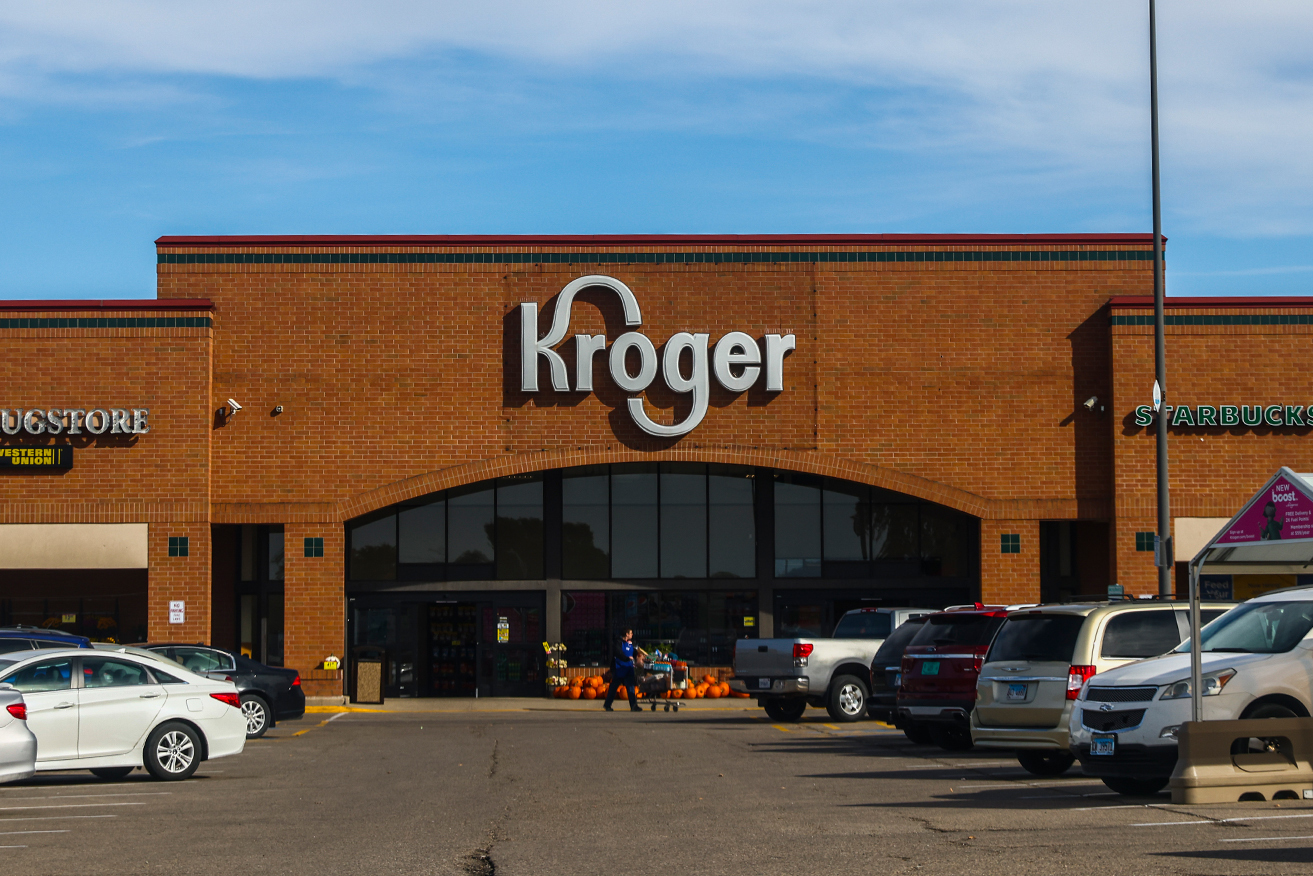Australians squeezed by supermarkets as US moves to stop its own duopoly


The US is trying to stop a mega supermarket merger that could create its own duopoly.
A move by regulators in the United States to block multibillion-dollar supermarket merger seemingly makes Australia’s grocery landscape look much less competitive by comparison.
The Federal Trades Commission (FTC) sued on Monday to block the America’s second-largest supermarket chain Kroger from swallowing its smaller rival Albertsons in a $US24.6 billion ($37.6 billion) deal.
Regulators argued the proposal to increase Kroger’s store footprint from 2500 to more than 5000 would be bad for competition, entrenching a two-player game with giant Walmart.
Australia, meanwhile, is reckoning with the costs of its own supermarket duopoly, where major chains Coles and Woolworths control upwards of two-thirds of the market.
An Australian Competition and Consumer Commission (ACCC) review is examining what can be done to boost competition in the grocery sector amid consumer anger about price hikes.
And last week the boss of Australia’s largest chain Woolworths resigned after a train-wreck interview with the ABC in which he was pressed about a lack of competitive pressures.
University of Technology Sydney Professor Sanjoy Paul said Australia is a very unique market, making it difficult to draw comparisons to the US and the proposed merger there.
But that does not mean lacklustre competition is not a key problem here, Paul explained.
“That concentration of market power belonging to two supermarkets gives them significant power to squeeze their suppliers and customers,” Paul said.
“It’s a problem for the Australian market.”
Unique Australia
Australia has several unique features that characterise the competitive landscape locally, Paul explained, including a relatively small – yet affluent – population that’s split between big cities and massive regional areas.
This helps create a natural incentive towards market concentration for firms because it’s much easier for a few chains to set up shop in particular areas and block out competitors.
“The population is concentrated in some areas, so if you establish your business you can bank land and create a barrier for others to enter the market,” Paul explained.
Australia’s two major supermarkets run almost 2000 stores between them, with Woolworths being the larger at almost 1100 stores, while Coles has more than 800.
They service a population of about 27 million people, almost half of whom live across just three cities – Melbourne, Sydney and Brisbane – where the major chains dominate the shops.
In the US, where the market is almost 10 times larger at more than 330 million consumers, the largest player Walmart has more than 4600 stores while Kroger maintains over 2500.
Shoppers are far more spread out in the US than in Australia, with less than 5 per cent of the population living within the three largest cities, and because the US is much larger even its smaller population centres are more capable of supporting a broader array of retailers.
Need for local response
Paul said the unique features of the Australian market mean regulators must take a hands-on role in boosting competition, including by promoting price transparency for shoppers and encouraging new businesses to set up shop in the major cities.
“First, they should investigate if there are any anti-competitive behaviours that are violating [existing] laws,” he said.
“We don’t know the full extent of the behaviour.”
A mandatory code of conduct between grocery suppliers and the supermarkets would also help boost transparency for consumers, delivering much-needed clarity on price setting.
Such a move is being mulled over by former Labor minister Craig Emerson, who is running the ruler over the grocery code in a public review set to report back later this year.








